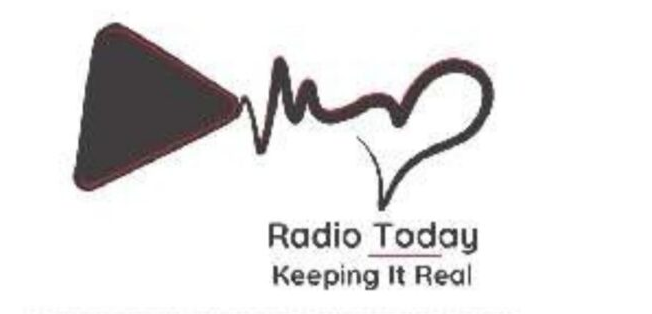Listeners:
Top listeners:
00:00
00:00
volume_up
chevron_left
-
 play_arrow
play_arrow
Radio Today Radio Today
-
 play_arrow
play_arrow
Afternoon Finance Mike Stroud
-
 play_arrow
play_arrow
Afternoon Finance Mike Stroud

share
close

Do you know your blood type? There’s a good chance that you don’t. There are compelling health reasons why you should know, especially when it comes to your heart. Research suggests that people with certain blood types — namely A and B — are at higher risk of developing blood clots and having attacks and strokes.
“We think about blood type a lot when we think about transfusions,” says Robert Salazar, M.D., a cardiologist at Memorial Hermann Health System in Houston. There may be some benefits to know about it for heart health, he adds. “Increasingly, there is a push towards the individualisation of medicine and medical advice. Adding information about blood type, may help to inform doctors on how best to treat patients.
Types of blood and your Health
There are four main blood types: A, B, O and AB, according to the American Red Cross. In addition to these antigens, there’s a protein called the Rh factor, which can either be present (+) or absent (-). That means there are eight blood subtypes: A+, A- , B+, B-, O+, O-, AB+, AB-.
What the research shows:
- Types A and B: Higher risk of blood clots, heart attacks and strokes.
- Type AB: Higher risk of stroke and inflammation. Those with AB+ blood can accept blood from all donors and are called universal recipients.
- Type O: Slightly lower risk of thrombosis, blood clots, heart attacks and strokes. People with type O- blood are universal donors and can donate to anyone.
Note that a healthy lifestyle likely trumps blood type in terms of increasing or decreasing risks. Blood types are determined by the presence or absence of certain substances, called antigens, that can trigger an immune response if they are foreign to the body.
Types A and B and blood clots
People with blood types A and B are at higher risk of developing blood
clots compared with people who have type O blood according to a 2020 study published in the American Heart Association journal Arteriosclerosis, Thrombosis, and Vascular Biology.
Why blood type affects clot risk
There are many possible reasons for why this happens, says Mary Cushman.
“The enzyme that controls blood type has other actions,” she explains. One of these is to modify a protein called von Willebrand factor, which is very important in forming blood clots. “The modifications to the protein are different in different blood types, so people with type O blood have the lowest levels of von Willebrand factor on average and the lowest risk of abnormal clots. Type AB has the highest level and, in some studies, the highest risk of blood clots.”
Type A, type AB and cholesterol, stroke
There’s evidence to suggest that type A blood is linked to higher levels of low-density lipoprotein (LDL) cholesterol, the waxy substance that clogs arteries. Type AB blood is linked to inflammation, which may adversely affect blood vessels. Larger studies need to be done before coming to any definite conclusions, Beckman says.
Blood type may impact stroke risk, too. A 2022 study published in the medical journal Neurology reviewed 48 studies of 17,000 stroke patients and found that people with type A were 16 percent more likely to have an early stroke than people with other blood types, and those with type O were 12 percent less likely. An earlier study done by Cushman found that blood type AB, compared with O, had a 1.8 times higher risk of stroke; other blood types weren’t affected.
What you can do
It’s important to keep research findings in context. Though certain blood types could mean an increased chance of health problems such as blood clots and stroke, the risk is relatively small compared with the dangers of smoking and high blood pressure, and blood type doesn’t tell you much about your personal risk, Cushman points out.
You also shouldn’t let your blood type give you a false sense of security. If you’re having surgery or if you have cancer — both situations that can raise the risk of blood clots — Cushman recommends that you talk to your health care provider about a blood clot prevention plan. “If you have O blood type, you may have slightly lower risk of some diseases like thrombosis, but it doesn’t completely protect you from the risk,” she says. Thrombosis occurs when clots block blood vessels.
Knowing your blood type may give you added insight into your heart health. Though doctors often talk about manageable risk factors, such as high blood pressure, diabetes and smoking, there’s less conversation around genes or the genetic risk for heart disease. Having a patient’s blood type is a “way to try to narrow down individuals who may be at high risk. For these people, following the American Heart Association’s Life’s Essential 8 — eating right, staying active, not smoking, getting enough sleep, managing weight, controlling cholesterol, managing blood sugar and managing blood pressure — may be even more important.
How to find out your blood type
A simple blood test can reveal your blood type. If you’re curious, you can ask your doctor to have it tested the next time you need bloodwork. There’s another very quick and easy way to figure out your blood type that’s also altruistic: Give blood.
Written by By Hallie Levine.
Editor’s note: This article, originally published February 21, 2023, has been updated with new information.
Written by: Mike Stroud
Rate it
Similar posts
Recent Comments
No comments to show.Featured post

Latest posts
Current show
Upcoming shows

Afternoons on Radio Today
3:00 pm - 5:55 pm

News Scoops
5:55 pm - 6:00 pm

Nature Journal
6:00 pm - 7:00 pm

In the Key of Jazz
7:00 pm - 10:00 pm

BBC World Service
BBC World Service
10:00 pm - 11:59 pmChart












